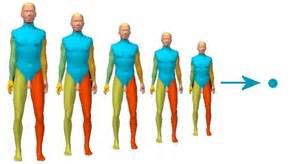
Human resource practitioners are tasked with struggling to keep fully effective the most complex and unpredictable components in the vast machine of enterprise – the people within it. Yet nowhere in the required reading about occupational psychology is the task so clearly defined as I have learnt by experience to perceive it.
All of us operate on several levels and only through understanding what they are and how the levels interact can we know how to manage relationships. People are what they say, what they do, what they know and feel, and who they are. This is a hierarchy of being and we have to discover what each of us really is through the intermediary of speech, action, thoughts and feelings. Each of these layers has its particular characteristics – with speech being the easiest to fabricate so that smoke screens can be imposed to cloud every action. Actions can be intended, unintended or one masquerading as the other. Knowledge can be good or bad and moods ever changeable. Yes, you say – I know this. But we seldom act as if we did so.
The poet Coleridge said that in reading poetry or any fictional narrative we should apply “a suspended apprehension of disbelief”. This means that any implausibility in the material should not ruin our initial reading of it. In fact we naturally treat things like TV drama in such a way and escape readily into the characters and storyline. But in real “warm-bodied” human interactions such an approach would leave us vulnerable to constant manipulation. In fact, “suspended belief” is the only way that human relations can advance with any integrity. Most of us yearn to be positive, but such negativity is our only defence. It can be disguised, of course, and may only be necessary for the time it takes to observe the consistency of each layer of being in different situations. Although such disguised skepticism may also be noted by those we observe – and that is why the mutual understanding of true selves is probably so rare.